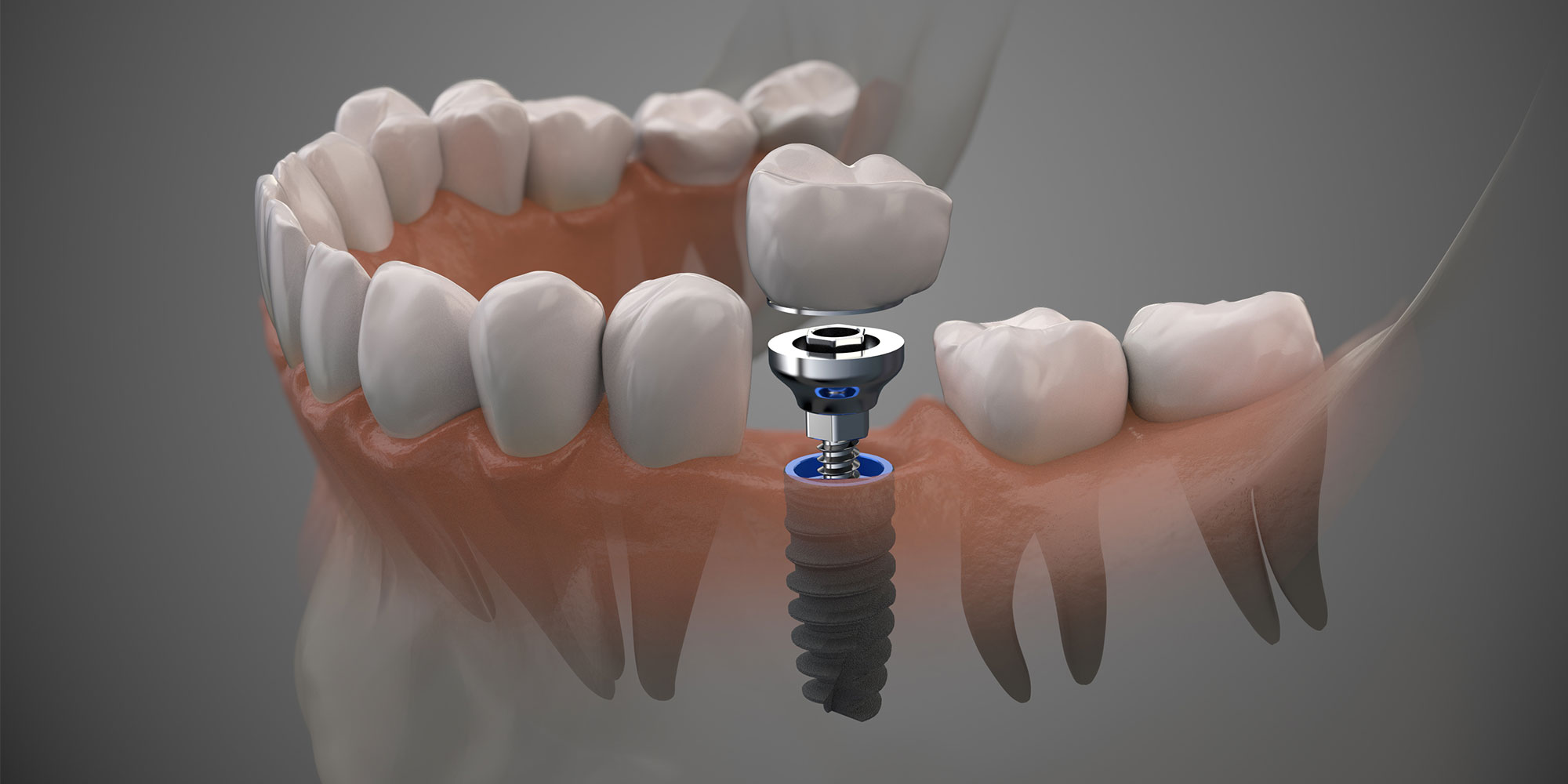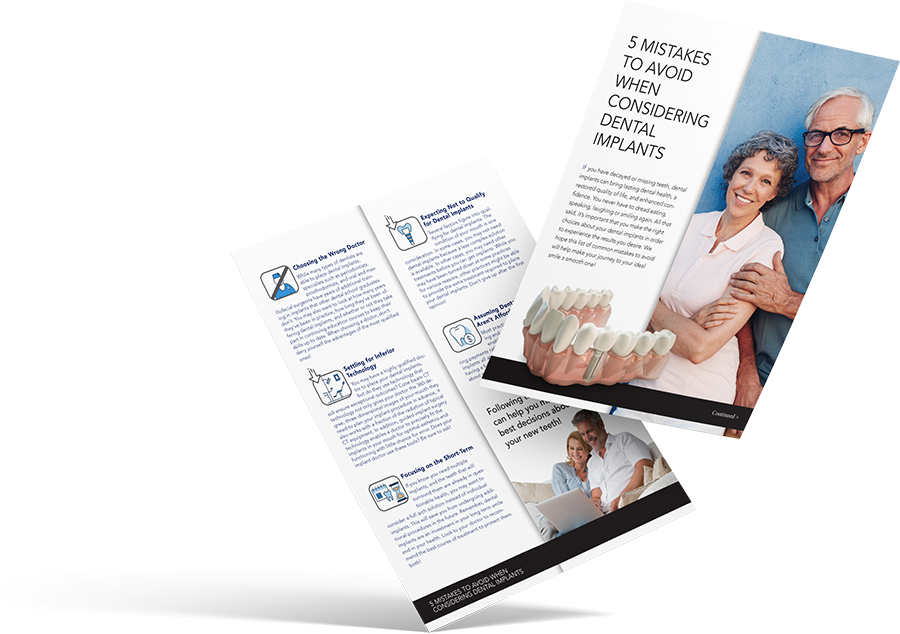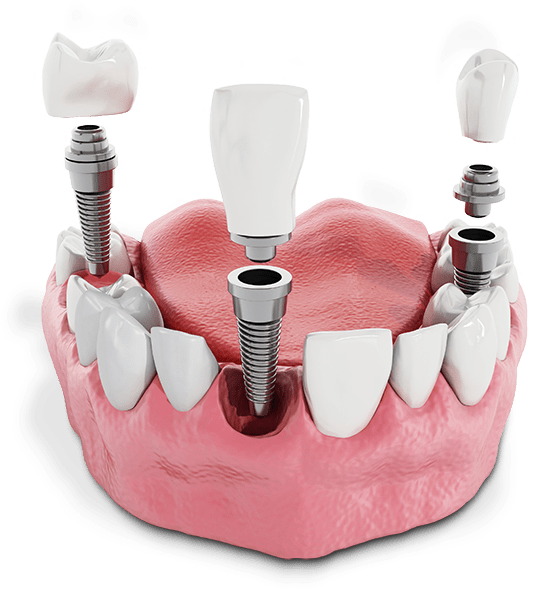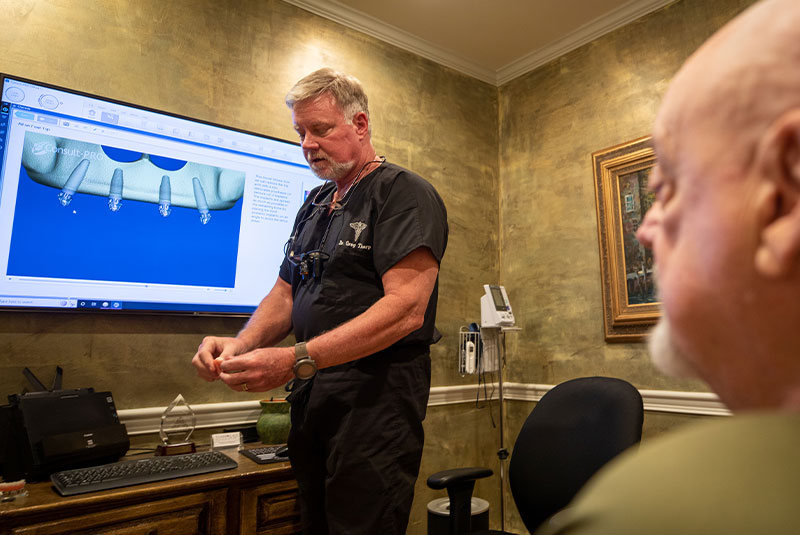


One of the major benefits of dental implantsis how easy they are to care for. Unlike dentures that must be removed nightly, dental implants are maintained just like natural teeth. By following an effective home care regimen—brushing and flossing twice a day—and visiting Tharp, Klaus, & Kelly for regular checkups, you can ensure the longevity of your implants.
The primary difference between caring for your implants and your natural teeth is selecting hygiene products that are gentle on your implants. It’s important to avoid scratching the implants and not to aggravate the soft tissue around them.
If you have any concerns about dental implant care, contact our dental team in Flowood, MS, today by calling (601) 939-4100. We’re more than happy to answer any questions you may have.

At Tharp, Klaus, & Kelly Dental Clinic, dental health is a vital component of your quality of life. Over our years of caring for and educating our patients, the long-lasting relationships we have created are our greatest source of pride. We strive to be the very best dental practice in the Flowood, MS, area. Each patient receives an excellent care experience before leaving our office. Allow us to guide you in the journey to reaching your dental health goals and achieving the smile you’ve always dreamed of!
Everything is done under one roof: treatment planning, dental surgery, restorative work, in-house lab services, and follow-up care. We believe in comprehensive care and continuous support, guiding our patients through every phase of their treatment journey.
Tharp, Klaus, & Kelly Dental Clinic provides a state-of-the-art facility featuring the latest diagnostic technology and treatments, including:
No matter how extensive your treatment, you can be confident in our ability to create a customized plan for you. Our Flowood dentists and staff are trained in areas such as prosthodontics, implant dentistry, cosmetic dentistry, and endodontics. Your dental health and patient experience are our number one priority the moment you step through our doors. Developing an understanding of your dental priorities helps us plan and create a treatment protocol that will fit your needs.
Implant maintenance problems can occur despite regular care. Here are some common problems and how to address them:
It’s important to seek prompt treatment for any implant maintenance problems to prevent further damage and ensure the longevity of your implant. Regular dental checkups and follow-up appointments can also help catch potential problems early.
Having the right tools can make a world of difference in maintaining your dental implants. The right toothbrush, toothpaste, and cleansers will help keep your implants looking like new for decades to come.
Patients can start brushing the implant site directly about one weekafter dental implant placement.
Studies indicate that you can effectively clean around your implant using either an electric or manual toothbrush. Soft or extra-soft bristles are recommended to avoid scratching the implants. Brush for at least two minutes, thoroughly covering all sections of your smile. Many electric toothbrushes have timers to ensure you brush long enough. Avoid toothpaste with abrasive ingredients, such as smokers’ toothpaste, stain-removing toothpaste, and toothpaste containing baking soda, sodium fluoride, or stannous fluoride.
Flossing is crucial for removing plaque and food particles from between your teeth and around your dental implants. Use nylon-coated floss or special dental floss designed for dental implants to make flossing around the implant post easier. The Waterpik® water flosser is also an excellent tool, reaching difficult spots and keeping the gum line clean.
Rinsing your mouth between meals is essential for maintaining the health of your dental implants. It helps remove food particles and bacteria that may be left behind after eating, which can lead to plaque and tartar buildup around the implant post. Use an antiseptic mouthwash specifically formulated for dental implants. Swish the mouthwash around your mouth for 30 seconds to a minute, making sure to reach all areas, including the implant site. Spit the mouthwash out and rinse your mouth with water.
After the dental implant procedure, regular dental cleaningsand checkups are crucial for maintaining excellent oral health and keeping your dental implants in pristine condition. Our dentist will examine your implants for any signs of wear or damage and clean and polish them to remove plaque and tartar buildup.
Our Flowood dental team can provide more specific instructions, including good foods to eat after dental implant surgery. Call Dr. Tharp, Klaus, and Kelly at 301-929-4100 to learn more from our dentists near you.
After receiving your dental implants, visit your dentist once every six months. Maintaining regular dental visits ensures your dental implants stay in excellent shape along with your surrounding natural teeth.
Most dentists recommend using a toothbrush and toothpaste specifically formulated for dental implants, as they’re designed to clean and protect the implant post and surrounding tissue without causing damage. Your dentist will recommend the best toothbrush and toothpaste for your specific case.
Since the base of your dental implant is fused with your jawbone, food won’t get trapped under the restoration. Unlike other tooth replacements, dental implants look, feel, and function the most like natural teeth.
Yes, plaque can grow on implants just like on natural teeth. Plaque is a sticky film of bacteria that forms on teeth and gums, and if not removed through proper oral hygiene practices, can lead to gum disease and other oral health issues. Similarly, plaque can accumulate on the surface of dental implants, leading to inflammation and potential implant failure. This condition is known as peri-implantitis and can cause bone loss around the implant.
It’s generally recommended to use toothpaste that’s low in abrasive particles, as these can scratch the surface of the implant or the restoration attached to it. Look for toothpaste with a low RDA (Relative Dentin Abrasivity) value, ideally under 70. Some toothpaste brands also offer specialized formulations for people with dental implants, which may include ingredients such as antibacterial agents to prevent plaque buildup or enzymes to break down bacteria.
Most patients are fully recovered after two weeks. The implant site may feel slightly tender to the touch. Your dentist may recommend over-the-counter pain medications to help with any soreness. The implant will continue to heal and bond with the jaw bone over the next three to six months, but the initial healing process will be completed.
Dental implants provide a long-term solution to tooth loss, but they still need proper care and maintenance. At Tharp, Klaus, & Kelly, we want to empower our patients by giving them all the information they need to protect their implants.
We encourage our patients to express their concerns and goals for their dental health during their time with our dentists. If you have any questions about your treatments, restorations, or diagnosis, contact ustoday at (601) 939-4100 for more information about how we can assist you!




Just like your natural teeth, dental implants are easy to care for and require simple items to maintain them.
Your brand-new smile deserves the attention it needs to keep it looking amazing. Just like your natural teeth, dental implants are easy to care for and require simple items to maintain them. If you have any questions about the best items to use, please to do not hesitate to contact our office and speak with one of our team members.
I understand the information disclosed in this form may be subject to re-disclosure and may no longer be protected by HIPAA privacy regulations and the HITECH Act.